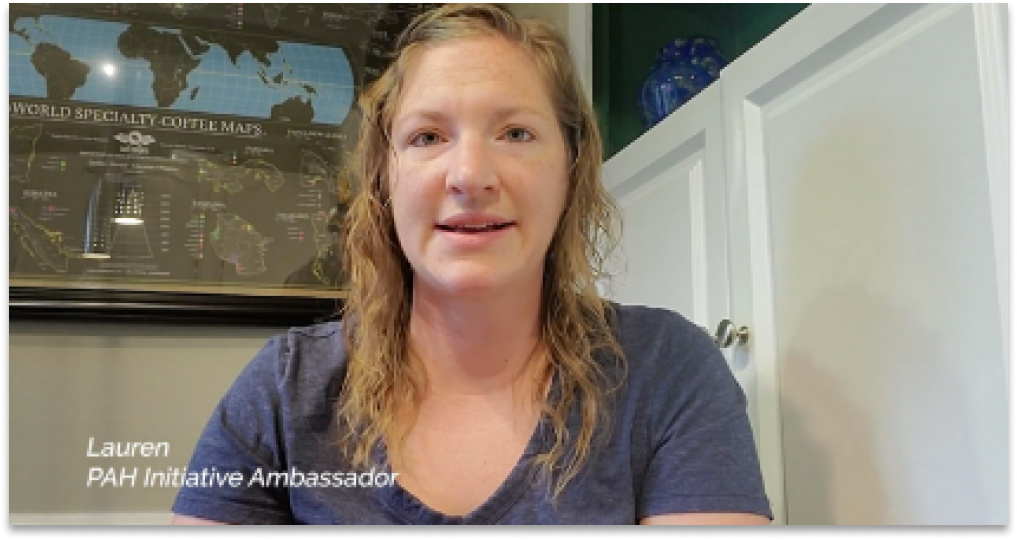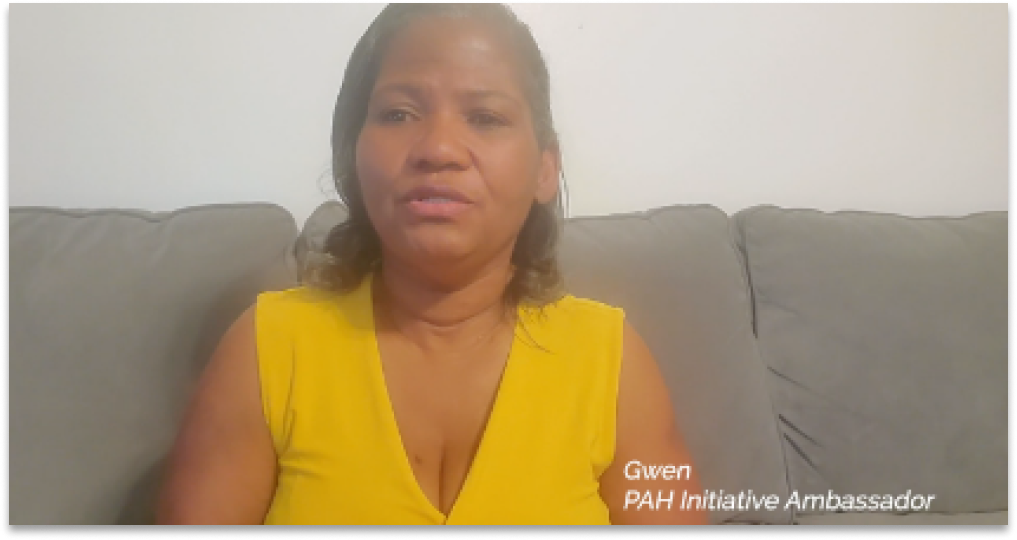
DISCLAIMER: THIS WEBSITE DOES NOT PROVIDE MEDICAL ADVICE. The material contained on this website is for educational purposes only and is not intended to be a substitute for professional medical advice. Always seek the advice of your healthcare provider with any questions.
Anxiety and depression are very common and may have an impact on your quality of life. Among US adults, about 8.1% experience anxiety and 6.7% experience depression. Unfortunately, those statistics go up for people with PAH. One study of 70 patients with PAH found that 33% experienced anxiety and 30% suffered from depression.

Because anxiety and depression are so common among people living with PAH, it’s extremely important to know the signs and to seek help when needed.
Depression might seem easy to recognize in others, but what about when you’re the one who may be experiencing it? We’re often not as good at recognizing issues when they are happening to us. There is an online depression screening tool that is used to help identify symptoms of depression. However, if you think you might be depressed, reaching out to a healthcare professional is always the best choice.
Some of the topics covered in the Mental Health America Online Depression Test include common symptoms of depression:
If you are having thoughts of suicide, call the National Suicide Prevention Lifeline at 1- 800-273-8255.
If you’re already dealing with the daily symptoms of PAH, depression and anxiety may feel even more unbearable. Starting to discuss the issue with a qualified healthcare professional as soon as possible is an important first step. Keep your PAH healthcare team informed of any new health conditions—including mental health. Not only can they offer support, but they may also be able to recommend local resources to help with depression or other mental health concerns. The American Psychological Association Psychologist Locator can also help you quickly find a therapist near you.

With PAH, life has already been turned upside down. By finding more information, like this website and other resources, you’re already taking an important step in understanding how mental health and a disease like PAH sometimes go hand in hand. There may be some ways to stay ahead of depression, though. In fact, research shows that lifestyle choices may help decrease the chance that someone may have mental health issues. In a study with more than 7,000 people, better mental health was linked with these lifestyle improvements:
If you are looking to make changes like these, talking to your healthcare team about your goals is a great place to start. If you’re already doing some or all these things, keep it up! The small things you are doing each day add up.
Wondering how mental stress impacts the rest of your body? Consider this: Stress may cause changes to the rest of your body, including
Feeling some level of stress about relationships, work, or health condition may seem inevitable—and sometimes, it is. Unfortunately, stress is part of life. We all experience it sometimes. However, finding ways to alleviate stress may help improve the way you feel day-to-day and avoid making your PAH symptoms feel even worse.
Remember, your support network is here for you when times get tough. Don’t hesitate to reach out to your
Staying connected with those who understand what you’re going through is extremely important. Sometimes, a PAH care team member, advocate, or loved one will be able to give you the support you need to relieve stress and stay healthier. Or, if you do need medical assistance for anxiety or depression, your healthcare team can help you find resources and information when you are feeling too overwhelmed or down to tackle it on your own.
PAH is a complicated disease that can be difficult to understand. We've broken it down for you with easy-to-understand information, simple graphics, and informative videos from a PAH specialist.
What is PAH?
Learn how Peggy renewed her competitive spirit after her PAH diagnosis and how she won't let an oxygen tank define her.
Competitive Spirit with PAH ⟩
How has knowing their risk status helped Lauren and Karen better understand if their treatment plan is working?
Knowing your PAH Risk Status ⟩
Living with PAH can be a big adjustment and taking care of yourself can make a big difference. But where do you start?
Self-Care and Healthy Living ⟩